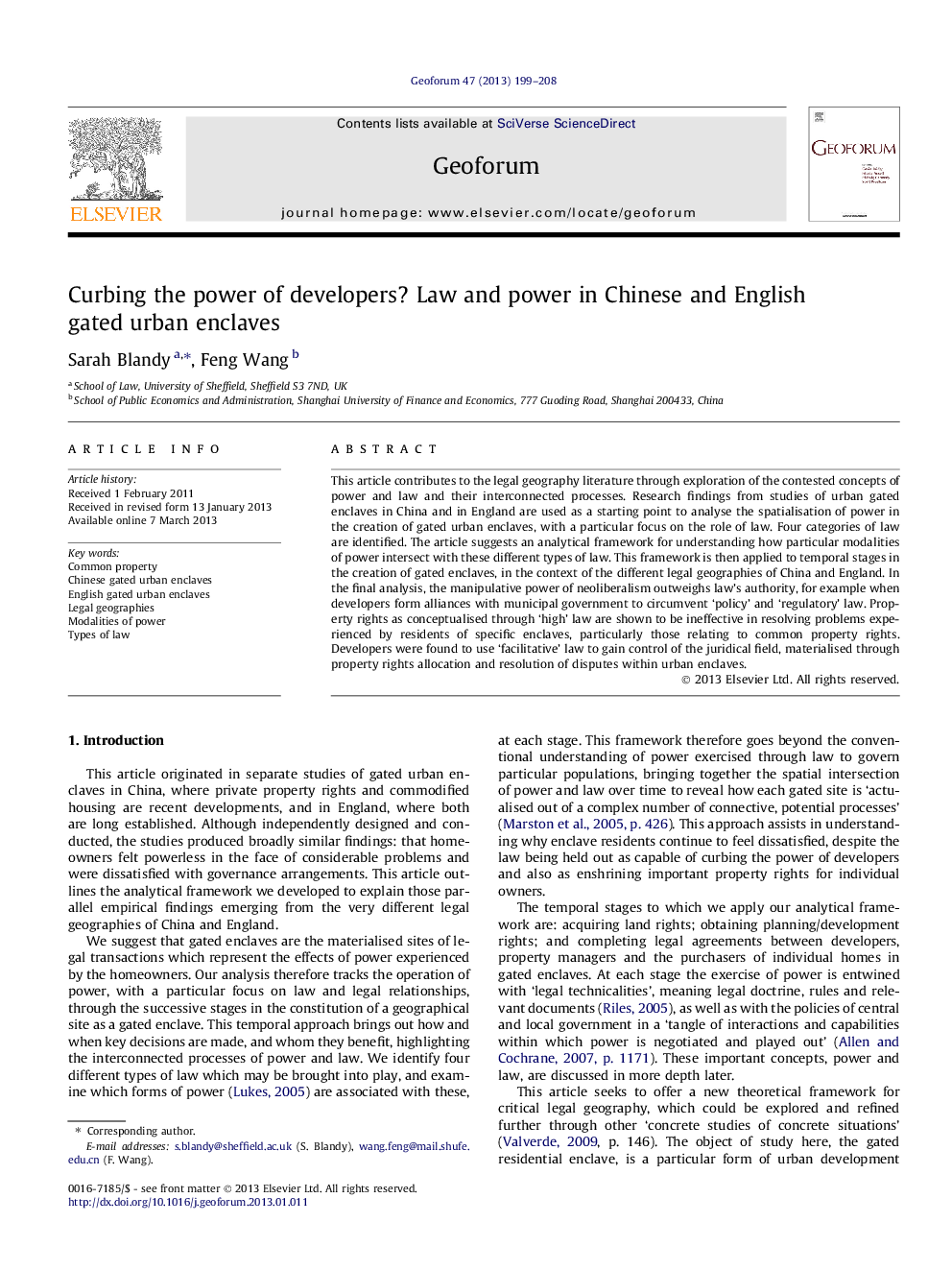| Article ID | Journal | Published Year | Pages | File Type |
|---|---|---|---|---|
| 5074291 | Geoforum | 2013 | 10 Pages |
This article contributes to the legal geography literature through exploration of the contested concepts of power and law and their interconnected processes. Research findings from studies of urban gated enclaves in China and in England are used as a starting point to analyse the spatialisation of power in the creation of gated urban enclaves, with a particular focus on the role of law. Four categories of law are identified. The article suggests an analytical framework for understanding how particular modalities of power intersect with these different types of law. This framework is then applied to temporal stages in the creation of gated enclaves, in the context of the different legal geographies of China and England. In the final analysis, the manipulative power of neoliberalism outweighs law's authority, for example when developers form alliances with municipal government to circumvent 'policy' and 'regulatory' law. Property rights as conceptualised through 'high' law are shown to be ineffective in resolving problems experienced by residents of specific enclaves, particularly those relating to common property rights. Developers were found to use 'facilitative' law to gain control of the juridical field, materialised through property rights allocation and resolution of disputes within urban enclaves.
⺠Based on research findings from urban gated enclaves in China and in England. ⺠Develops framework for analysing the intersection of law and modalities of power. ⺠Identifies four types of law: 'high', 'facilitative', 'policy' and 'regulatory' law. ⺠Concludes that the manipulative power of neoliberalism trumps law's authority. ⺠Contributes to legal geography literature.
